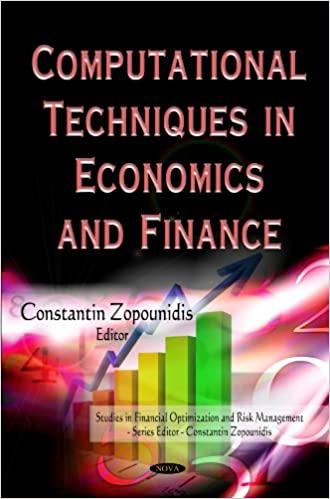Question
A stock has a required return of 13%; the risk-free rate is 3%; and the market risk premium is 4%. What is the stock's beta?
A stock has a required return of 13%; the risk-free rate is 3%; and the market risk premium is 4%.
What is the stock's beta? Round your answer to two decimal places.
If the market risk premium increased to 9%, what would happen to the stock's required rate of return? Assume that the risk-free rate and the beta remain unchanged.
If the stock's beta is equal to 1.0, then the change in required rate of return will be greater than the change in the market risk premium.
If the stock's beta is equal to 1.0, then the change in required rate of return will be less than the change in the market risk premium.
If the stock's beta is greater than 1.0, then the change in required rate of return will be greater than the change in the market risk premium.
If the stock's beta is less than 1.0, then the change in required rate of return will be greater than the change in the market risk premium.
If the stock's beta is greater than 1.0, then the change in required rate of return will be less than the change in the market risk premium.
-Select-IIIIIIIVVItem 2 New stock's required rate of return will be %. Round your answer to two decimal places.
Step by Step Solution
There are 3 Steps involved in it
Step: 1

Get Instant Access to Expert-Tailored Solutions
See step-by-step solutions with expert insights and AI powered tools for academic success
Step: 2

Step: 3

Ace Your Homework with AI
Get the answers you need in no time with our AI-driven, step-by-step assistance
Get Started


